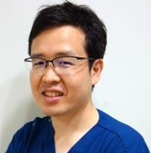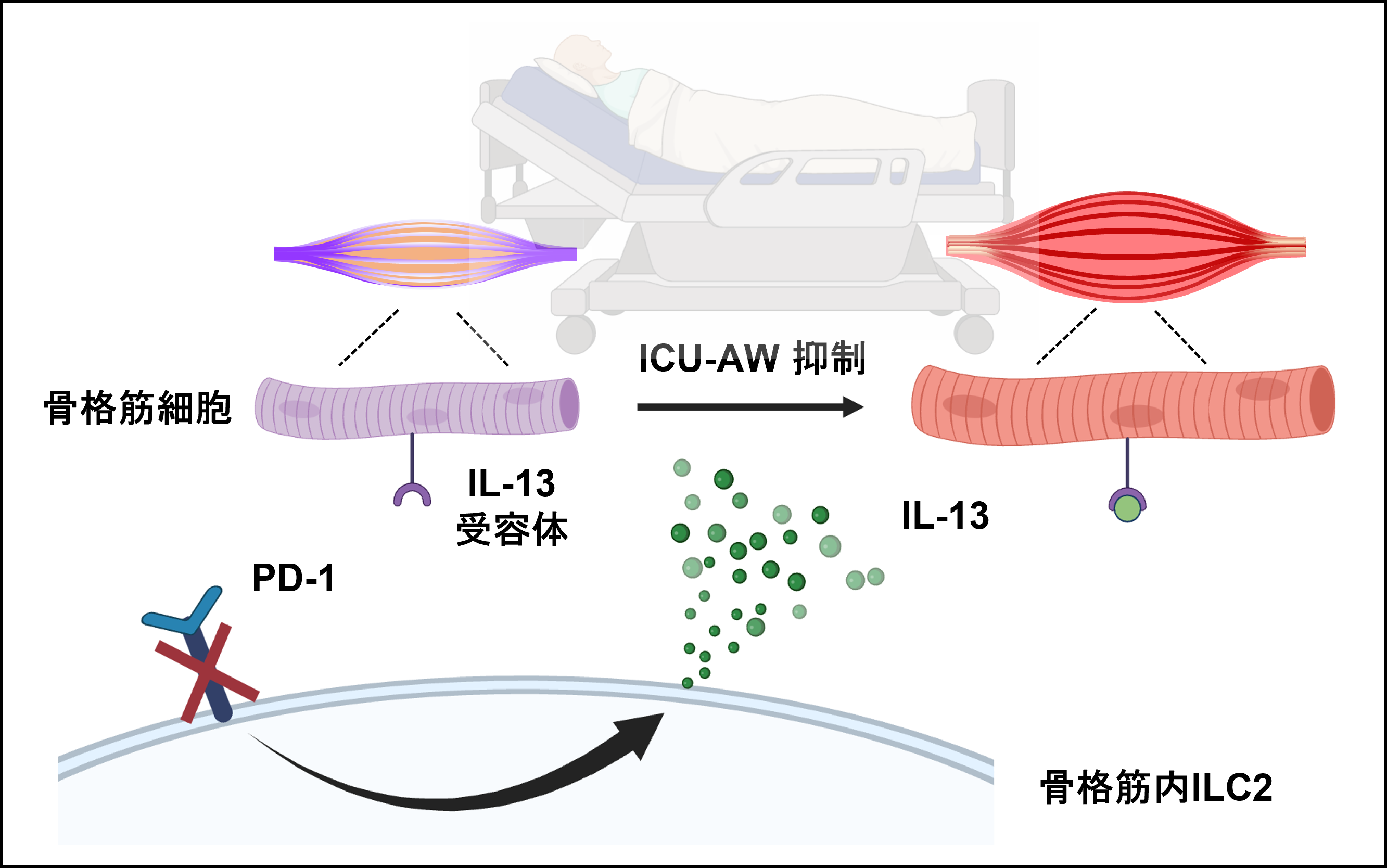Summary of our research
The mortality rate of sepsis patients has been decreased along with the rapid advance of medical technology and health care system. However, the patients survived from sepsis suffer from long-term problems associated with multiple organ dysfunctions. Intensive care unit-acquired weakness (ICU-AW), which reduces the quality of life and raises the mortality in the patienes, is a serious syndrome characterized by a long-term muscle weakness often observed in sepsis-surviving patients during the chronic phase. The effective therapeutics to ICU-AW has yet to be established. A research team led by Dr. Yuichi Akama, Associate Professor Eun Jeong Park, and Professor Motomu Shimaoka, Mie University Graduate School of Medicine, has made an important discovery regarding the molecular mechanism of ICU-AW pathogenesis.
In this study, it has revealed that the immune cell-expressed receptor called programmed death-1 (PD-1) and skeletal muscle group 2 innate lymphoid cell (ILC2)-derived IL-13 play a critical role in sepsis-induced ICU-AW. In particular, long-term muscle weakness in experimental ICU-AW was ameliorated in PD-1 KO mice. ILC2-derived IL-13 production in skeletal muscles was increased in PD-1 KO mice, thereby suggesting that IL-13 alleviates muscle weakness during sepsis. This study demonstrates the effects of PD-1 blockade in preserving muscle strength during sepsis through an increase in ILC2-derived IL-13 and may be an attractive therapeutic target for sepsis-induced ICU-AW.
This study has been published in 「Journal of Cachexia, Sarcopenia and Muscle」 online on July 17, 2024.
https://onlinelibrary.wiley.com/doi/full/10.1002/jcsm.13548
Researcher information

Yuichi Akama:Research Associate, Graduate School of Medicine
Specialized ares:Emergency and Critical Care Medicine, Molecular Pathobiology
Current research field: Sepsis, ICU-AW, ILC

Eun Jeong Park:Associate Professor, Graduate School of Medicine
Specialized ares:Molecular Pathobiology, Immunology
Current research field:Mucosal immunology, Integrin, microRNA, Inflammation, Exosome

Motomu Shimaoka:Professor, Graduate School of Medicine
Specialized ares:Molecular Pathobiology, Immunology
Current research field:Pathogenic pain, Medical communication, Wearable sensor, Inflammation, Exosome, Integrin, Cell adhesion
